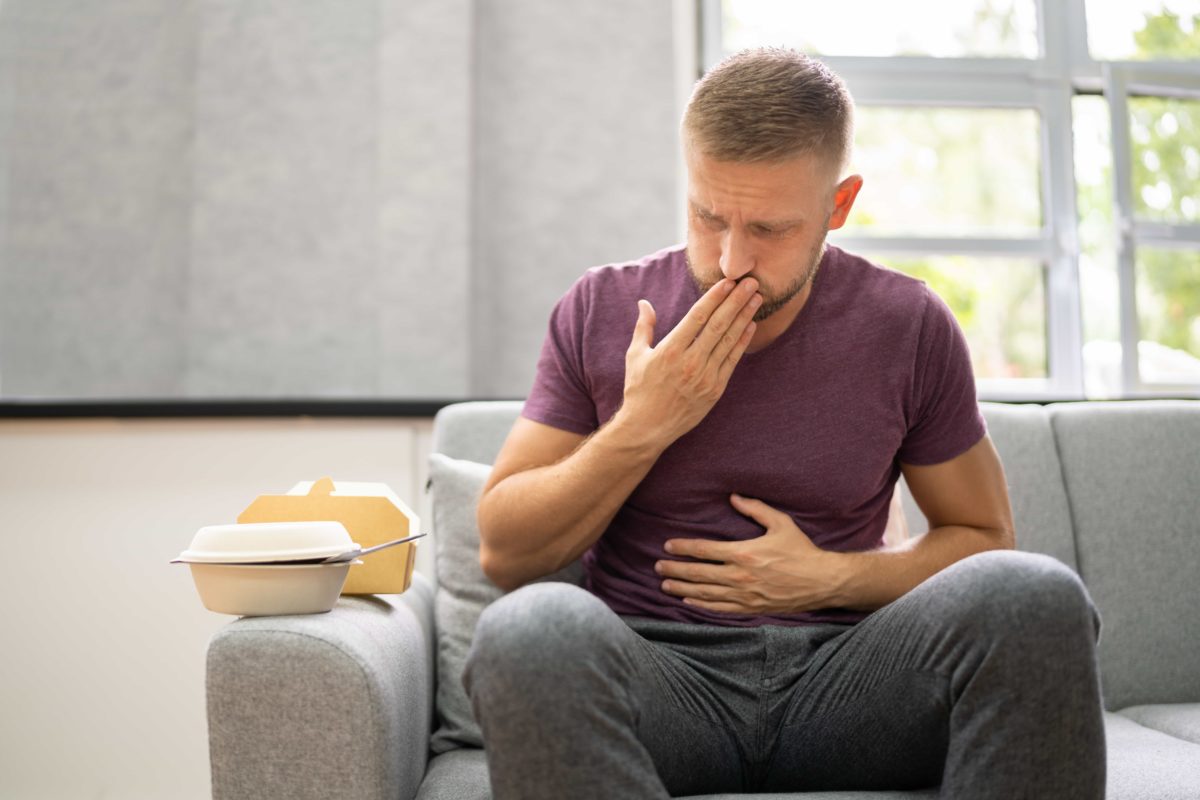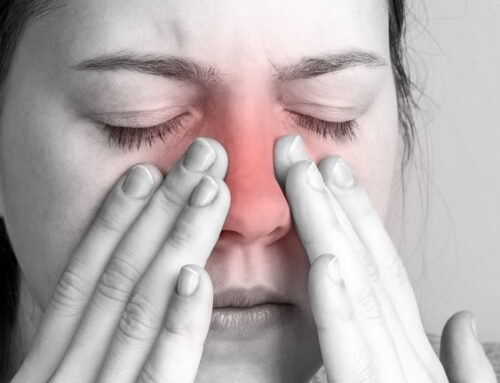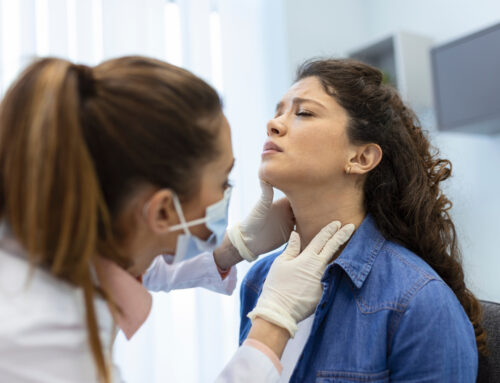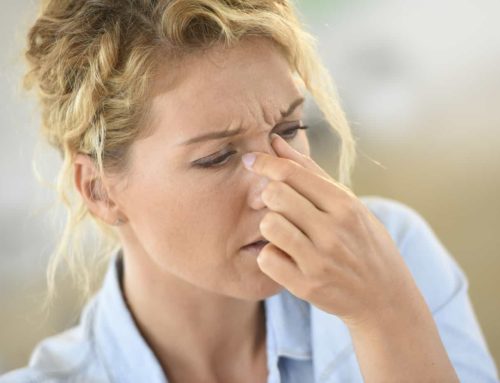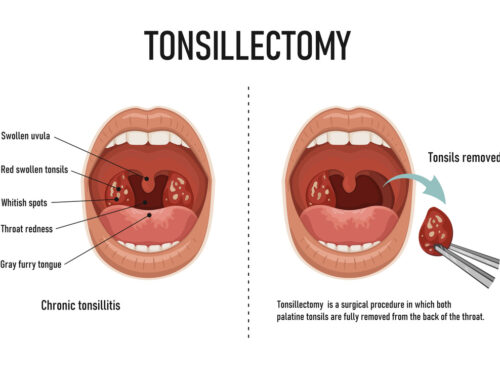GERD and LPR are medical conditions that can be incredibly serious if left untreated for too long. Prompt treatment is necessary to minimise the risk of significant complications and, if you think you have one of these conditions, it is important that you speak to a professional ear, nose and throat doctor. In this article, we’ll describe symptoms of GERD and LPR and explain how these conditions can be diagnosed and treated.
What is GERD?
Gastroesophageal reflux disease (GERD) is a condition where stomach acid travels up into the oesophagus. There is a ring of muscle at the lower end of the oesophagus called the lower oesophageal sphincter (LOS) which usually contracts to inhibit the acidic contents of the stomach from coming back up the oesophagus. It allows food to travel into the stomach while preventing any contents of the stomach from ‘refluxing’ back up. With GERD, the LOS does not fully contract correctly which allows the acidic contents of the stomach to reflux into the oesophagus.
The lining of the oesophagus is incredibly sensitive. When stomach acid touches this lining it causes damage and irritation. This feels like a burning sensation, which is why the symptom is referred to as heartburn.
Most people experience reflux at some point occasionally. However, when it happens on a regular basis over a long period of time, it is diagnosed as GERD.
Common symptoms of GERD include:
– Persistent heartburn
– Nausea
– Hoarseness in the morning
– Difficulty swallowing
– Regurgitation of acid
Some people can experience GERD without any heartburn which can make the condition more difficult to spot. In extreme cases, the condition can lead to chest pain severe enough that it can be confused for a heart attack. Bad breath and a dry cough are less common symptoms to look out for.
What is LPR?
There is another ring of muscle at the top of the oesophagus called the upper oesophageal sphincter (UOS). Sometimes gastroesophageal reflux causes the acidic contents of the stomach to travel all the way up beyond the UOS and into the back of the throat and the back of the nasal airway. This is called laryngopharyngeal reflux (LPR).
In adults, LPR can lead to a bitter taste in the mouth, a burning sensation in the back of the throat or a sensation of something being stuck in the throat. Symptoms also include hoarseness, swallowing problems, a repeated urge to clear the throat and a postnasal drip, which is the sensation of fluid draining at the back of the nose. Sometimes the voice box can be affected and patients can have difficulty breathing.
In children and babies, LPR can lead to a variety of respiratory problems such as asthma, stridor (noisy breathing), croup (inflammation of the larynx and trachea), apnoea (pauses in breathing), sleep-disordered breathing, and cyanosis (turning blue due to lack of oxygen). It can cause life-threatening complications, or lead to a severe growth deficiency. It is essential that LPR is treated urgently when it occurs in children.
Do GERD and LPR occur together?
Sometimes GERD and LPR can happen together. However, it is possible to have either condition alone without the other. Since many of the symptoms overlap it can be difficult to establish which condition is present. If symptoms of either condition occur twice each week or more on a regular basis you should visit a medical professional for diagnosis and treatment.
Who is at risk of GERD and LPR?
GERD and LPR can affect anyone of any age. However, there are certain physical and lifestyle factors that can increase the risk. Physical causes of the conditions include malfunctioning or abnormal LOS, abnormal oesophageal contractions, hiatal hernia, and slow emptying of the stomach. Pregnant women are more susceptible to GERD and LPR. In children, immature development of the oesophageal sphincters is often to blame for reflux.
Diet can cause or worsen GERD and LPR, with spicy, fatty and acidic foods being common triggers. Overeating, alcohol abuse and smoking can also contribute to GERD and LPR. It’s worth noting too that some people are simply more susceptible to reflux than others, and any given amount of refluxed content can cause different varieties and severities of symptoms from one patient to the next.
When left undiagnosed and untreated, GERD and LPR in children can lead to respiratory problems, repeated vomiting and coughing. These problems may persist even after the child has grown out of the GERD and LPR itself.
How can an ear, nose and throat (ENT) specialist help with GERD and LPR?
Gastroenterologists tend to be the first point of call for treating GERD and LPR since these are gastrointestinal disorders. However, the secondary problems caused by the conditions can impact the ear, nose and throat which is why visiting an ENT can be helpful. Hoarseness, narrowing of the airways, throat pain, swallowing problems, sinus infections, inflammation and lesions of the larynx, and any other complications of GERD and LPR that affect the throat and nose can be treated by a professional ENT in London.
How are GERD and LPR diagnosed?
A physical examination is the first step in diagnosing GERD and LPR. This might be followed by a trial of medication to see how the patient’s symptoms react. Additional tests may be required to determine a diagnosis, assess the severity of the issue, or look for complications that have arisen as a result of GERD or LPR. These tests could include:
– Endoscopic exam (camera inserted into the oesophagus, nose, throat or windpipe)
– Biopsy
– X-ray
– 24 hour pH probe
– Manometry (oesophageal motility testing)
– Emptying studies of the stomach
How are GERD and LPR treated?
Many people with GERD and LPR respond well to lifestyle changes and medication. Some medications must be prescribed and others can be purchased over the counter. Common medications used include:
– Antacids
– Foam barrier medications
– Antihistamines
– Pro-motility drugs
– Proton pump inhibitors
In rare instances of GERD and LPR, surgical intervention may be required where lifestyle changes and medications have been ineffective. A surgery often performed to treat GERD and LPR is fundoplication. This is where part of the stomach is wrapped around the lower part of the oesophagus to tighten the LOS. Endoscopy can also be used to apply laser or stitches to the LOS to tighten it.
What can I do to prevent or reduce the severity of GERD and LPR?
Many people find that GERD and LPR improve or go away after making key changes to their diet and lifestyle. Such changes include:
– Avoiding eating or drinking two hours before bed
– Eating small meals
– Eating slowly
– Avoiding alcohol
– Losing weight
– Quitting smoking
– Wearing loose clothing
It’s also helpful to avoid common trigger foods and drinks such as:
– Fatty foods
– Fried foods
– Caffeine
– Peppermint
– Fizzy drinks
– Chocolate
– Citrus fruit
– Tomatoes
If you would like more information about GERD or LPR, get in touch with the professional ear, nose and throat doctors at 150 Hartley Street to learn more.

